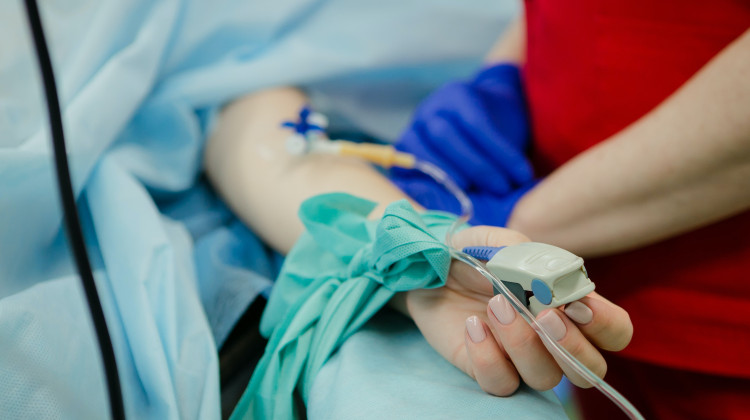
House Bill 1462 stalled last week, but could still pass the Indiana Legislature in this session.
Olga Kononenko / UnsplashAdvocates for House Bill 1462 say it would provide crucial support for people with substance use disorder at a point when it may be most effective: during and after an emergency room visit.
The bill would require emergency departments in Indiana to evaluate their ability to provide intervention services like peer recovery support, initiate medication assisted treatment and help patients get connected to substance use disorder treatment.
Patients with substance use disorder and mental illness could be connected to medication and counseling, if appropriate.
Hospitals would submit plans to the state annually. The bill’s author, Rep. Ann Vermillion, a Republican representing Marion, has said its application should be tailored to each facility’s needs and abilities.
Doug Huntsinger, executive director for Drug Prevention, Treatment and Enforcement in Indiana was among those who testified in support of the bill, and called emergency departments “a critical intervention point.”
He cited a state-commissioned study that found in more than two thirds of fatal drug overdoses, the person had been treated at the ER for a nonfatal overdose within the past three months.
State data shows more than 2,800 people died from overdoses in Indiana in 2021. Provisional data shows 2,250 overdose deaths in 2022.
The measure passed the House in late February with overwhelming support, and progressed past its first Senate hurdle soon after when the Committee on Health and Provider Services amended and approved the bill.
But for more than a month, the measure sat dormant in the Senate Committee on Appropriations, before falling off the docket last week when it failed to get a hearing by the deadline.
There is still a chance for the measure to be included in legislation this year. Since it passed the House, the bill’s language could be added to another bill during a conference committee before the end of the session.
Vermilion told LPM News in a statement Tuesday she’ll continue to work at moving the bill forward.
"Our goal is to ensure Hoosiers have access to mental health services, and that means local emergency departments need to have comprehensive plans in place to respond,” the statement read, in part.
“This bill ensures hospitals evaluate their abilities to respond to addiction-related emergencies and create plans for patient intervention.
Huntsinger said in a statement that even if it doesn’t become law, the state will work to improve access to recovery resources for the people who need them.
“Regardless of if the language is inserted into another bill during this legislative session, we plan to continue to work with hospitals across the state of Indiana to improve outcomes for individuals who present in emergency departments with substance use disorder,” he said.
The bill would also allow more providers to do office-based opioid treatment, like medication, by lifting a waiver requirement from the federal Substance Abuse and Mental Health Services Administration.
Indiana’s legislative session ends April 29.
Coverage of Southern Indiana is funded, in part, by Samtec, Inc. and the Hazel & Walter T. Bales Foundation.
9(MDAyMzk1MzA4MDE2MjY3OTY1MjM5ZDJjYQ000))
 DONATE
DONATE






 Support WFYI. We can't do it without you.
Support WFYI. We can't do it without you.